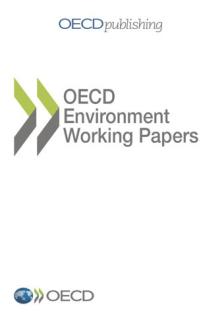
Discouraging car use constitutes an area in which inclusive policy action is urgently needed. Road traffic generates local, regional and global externalities, which have considerable social costs. The use of motorized vehicles causes congestion, accidents, time losses, local air pollution and fuel waste. While some of these social costs are experienced on the spot or in the short term, others are incurred over longer time horizons. For instance, road passenger transport generates up to 10% of greenhouse gas emissions that lead to global warming and climate change.
This report takes stock of scientific findings to date regarding the distributional effects of policies discouraging car use in urban areas. These policies include cordon tolls, distance-based charges, fuel taxes, parking measures and public transport subsidies.
The report describes the mechanisms responsible for the distributional effects of these policies and offers insights regarding how such policies can be designed to minimize adverse equity outcomes. It also provides recommendations regarding the design and procedural modifications that standard instruments require in order to be more acceptable to the public and to governments.
